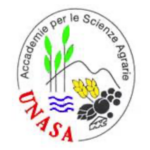
Comment on the need to approve the use of Genome Editing for the genetic improvement of cultivated plants
25 10 2021
UNASA Unione Nazionale delle Accademie per le Scienze Applicate allo Sviluppo dell’Agricoltura, alla Sicurezza Alimentare ed alla Tutela Ambientale Comment on the need to approve the use of Genome Editing for the genetic improvement of cultivated plants Today’s agriculture is facing the double challenge which can be summarized as: more production less input. This requires reaching […]

UNASA
Unione Nazionale delle Accademie per le Scienze Applicate allo Sviluppo dell’Agricoltura, alla Sicurezza Alimentare ed alla Tutela Ambientale
Comment on the need to approve the use of Genome Editing for the genetic improvement of cultivated plants
Today’s agriculture is facing the double challenge which can be summarized as: more production less input.
This requires reaching a sustainable intensification to face the increasing world population growth while reducing environmental costs and increasing food availability and quality. The scientific and technological progress can help us developing crops that use resources more efficiently. According to this view, genetics and plant breeding should play a pivotal role; crop varieties must continuously adapt to changing environmental conditions also affecting biotic stresses that plants undergo.
The toolkit of the modern plant breeder has been enriched by Genome Editing based on the CRISPR/Cas9 technology that allows specific, reproducible and precise changes in plant genomes.
To fully exploit the potential of these technologies, a proper European legal framework must be devised accordingly. Currently, based on the sentence of the European Court of July the 24th 2018, plants produced using genome editing – along with their products – are considered GMOs and consequently fall under the very strict and costly regulation ruling GMO production, use and commercialization.
The Italian scientific community, together with their European colleagues, strongly encourage a revision of the regulation, which is based on 20-year-old scientific knowledge and methodologies. In fact, genomic modifications produced with Genome Editing are identical to those occurring spontaneously or induced via mutagenesis, making them indistinguishable from naturally occurring events and therefore untraceable. Moreover, considering the product of genome editing as GMOs can dramatically advantage big breeding companies only, while putting out of the playground many small- medium-sized enterprises that may not afford the cost imposed by releasing an OGM, estimated between 30 and 50 million euros.
We firmly believe that the new regulation for Genome Editing should: i) be based on the characteristics of the products and not on the technology used to produce it, ii) consider the quick pace of the technological advancements and iii) consider varieties obtained through events indistinguishable from spontaneous or mutagenesis-induced modifications, as products of traditional breeding and selection.
Florence October 25, 2021
Prof. Mario Enrico Pè
President of Italian Society of Agricultural Genetics